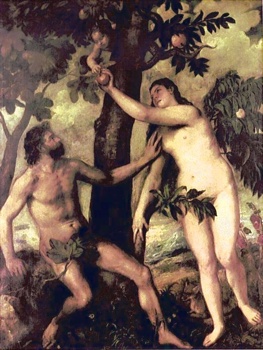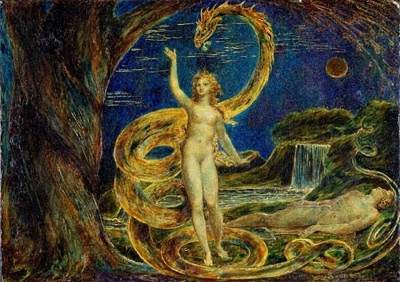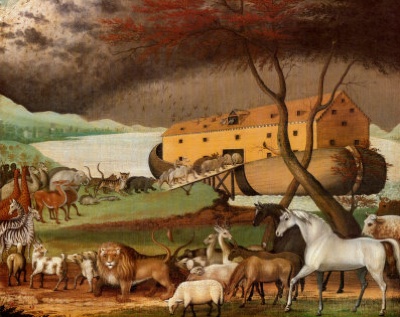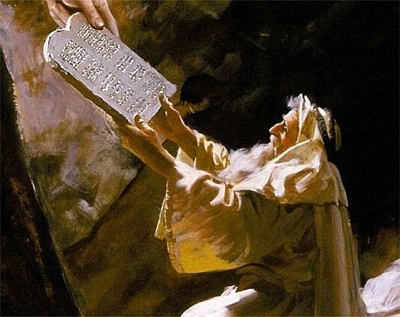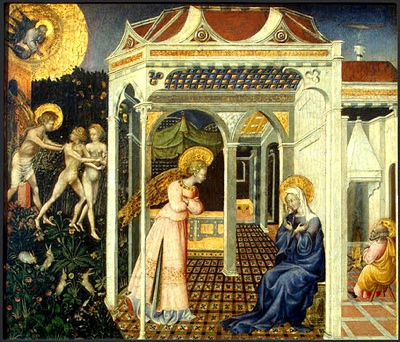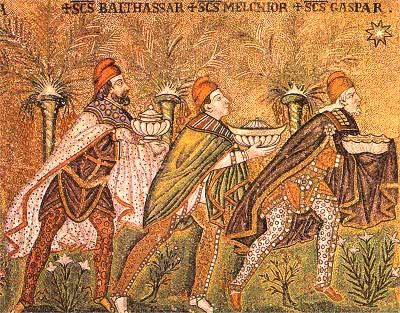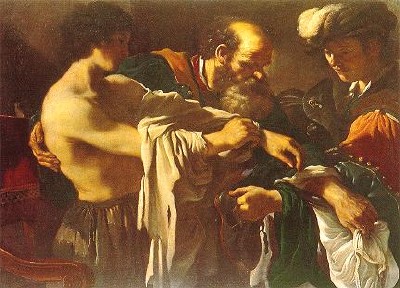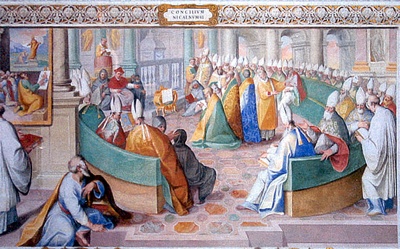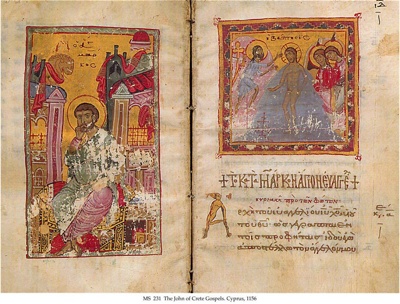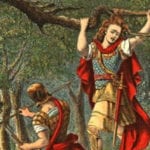Contrary to popular belief, Adam and Eve did not eat an Apple in the book of Genesis. The fruit is not actually named at all – it is referred to only as the fruit of “the tree of Knowledge of Good and Evil”. The reason this misconception has come about is most likely due to the fact that in Middle English, the word “apple” was used to refer to all fruit and nuts (except berries). Over the centuries, this word has stuck in reference to the Genesis fruit. [Genesis 2:17]
The serpent that convinced Eve to take the fruit from the tree of Knowledge and Evil is not referred to as Satan in Genesis. He is known only as the serpent who was “more subtle than any of the beasts of the earth”. Additionally, the term “Lucifer” used in reference to Satan comes from the Vulgate translation of Isaiah 14:12 – at no point in the Bible is Satan directly referred to by the name Lucifer. [Genesis 3]
We all know that the “animals went in two by two”… right? Wrong! In fact, all clean animals went in in groups of seven, and unclean animals in groups of two. According to Jewish dietary law, there are far more clean animals than unclean, so the majority of creatures entering the ark went in as a group of 7. [Genesis 7:2-3]
Considering the importance of the ten commandments to so many people, you would think they would have a clear idea of how they are defined, but most people do not. The Bible does not list a consistent set of 10 commandments at all. In Exodus, the list includes 14 or 15 “statements”. Though the Bible does refer to a set of “10” rules, it does not mention them in the same sections as the list commonly known as the ten commandments. Different Christian sects have divided the list of commandments up differently. The Catholic Church combines the first 3 statements in to one commandment, and the Protestants combine the final two in to one statement. You can see a complete list of the differences here. To add to the confusion, there is also another set of 10 commandments called the Ritual Decalogue which includes laws such as “Do not cook a kid in its mother’s milk”. [Exodus 20]
The immaculate conception is not a reference to Jesus being born without sin, but to his mother Mary. Most Christians believe that all people are conceived with original sin (the sin inherited from Adam and Eve) but that Jesus was not. Additionally, the Catholic Church teaches that Mary was also conceived without sin and this is where the term “Immaculate Conception” has come from. [Luke 1:28] You can read more about this on Wikipedia.
No doubt most of us have heard the Christmas Carol “We three kings of Orient are;” but in fact, the three “kings” are never referred to as Kings in the Bible. Additionally, they are not referred to as a group of three. The only reference to the number ‘3’ is the number of gifts they carried. [Matthew 2:7-11]
Nowhere in the Bible does it say that Mary Magdalene was a prostitute. In fact, she is barely mentioned at all. Aside from her presence at the ressurection, the only other thing that the Bible does say is that she was possessed by seven demons. [Luke 8:2]
Contrary to popular belief, “Prodigal” means “characterized by a profuse or wasteful expenditure” – it is not a reference to leaving or returning. [Luke 15:11-32]
The Emperor Constantine did not define the canon of the New Testament at the first Council of Nicaea in 325AD – in fact, the Council did not even make mention of the Biblical canon. It was already defined by common use by the early 2nd century in the form in which it is still found in Catholic Bibles. Another little known fact is the Emperor Constantine had no voting power at the council – he was there merely as an observer. [Canons of the Council of Nicaea]
Some people believe that over the centuries, the Bible text has been altered to suit the ideologies of the editors. In fact, there are only a very small number of textual alterations that modern philologists and critics consider intentional changes; most are simply errors in spelling or copying. Bart D. Ehrman (a New Testament textual critic) says: Aside from the removal of a number of books in the 16th Century, the text of the books that now comprise the full canon of the Bible, is essentially the same now as it was in the 2nd century. [EDIT:] Due to some comments, I thought it would be useful to add these notes: The Old Testament was decided by the apostles and Jesus as they both used the Septuagint (LXX): “Though the Early Church used the Old Testament according to the canon of the Septuagint (LXX), the apostles did not otherwise leave a defined set of new scriptures; instead the New Testament developed over time.” [Wikipedia] The New Testament as it is found today in the Catholic Bible (not the Protestant bible – such as the King James Version – as they removed books in the 16th century): “Thus, while there was a good measure of debate in the Early Church over the New Testament canon, the major writings were accepted by almost all Christians by the middle of the second century.” Ibid. For those who doubt the fact that changes have not been substantially made, I would suggest a comparison of the Vulgate (5th Century) with the Douay Rheims – Challoner edition (18th Century) which is the official English version of the Catholic Bible. You can find the Vulgate here, and the Douay Rheims here. Read More: Twitter Facebook YouTube Instagram
